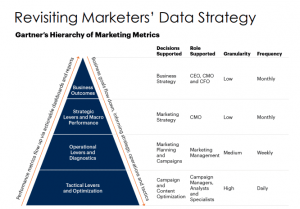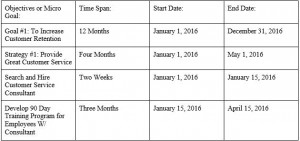Search engine optimizers (SEO) like myself are typically forced to juggle multiple responsibilities at once. Depending on the size and scope of our teams, we’re in charge of planning strategies, creating content, making technical changes, doing publisher outreach, nurturing our campaigns, and even following up with measurement and analysis. All of these areas have separate best practices and mistakes to avoid, and we do our best to adhere to all of them.
For the most part, missing one of these best practices isn’t the end of the world; after all, it’s only a small piece in the bigger SEO puzzle. But there’s one general principle—one major factor for success—that permeates all these areas simultaneously, and if you don’t adhere to it, your entire campaign could end up failing.
Willingness to Adapt
In every area of SEO, you need to be willing to adapt. The optimization world is in a state of constant flux, with both internal and external factors affecting your performance. Google changes its algorithm all the time (essentially changing the rules of the game), new technologies emerge, and consumer behaviors change. Internally, your different efforts and experiments will bear different effects on your results, and different stages of SEO development require different user inputs to keep momentum going. On top of all that, your competitors are going to be making moves that may eclipse your strategies or offer better alternatives.
It’s exhausting to keep up with all these changes, but you have to if you want to succeed. If you stay in one place too long, you’ll get left in the dust. So why is it that so many SEOs have a hard time adapting?
The “Good Enough” Effect
One of the biggest influencers in preventing SEOs from adapting is a sense of complacency. After a few months of serious efforts, you’ll start to see some great results from your campaign—traffic and visibility will be up, and you’ll start breaking into positive ROI territory. From there, you can repeat the same tactics and actions to see similar results. For the most part, this is good—predictable, measurable results are something every business wants—but it ignores your true potential. You may be seeing a high ROI with your current efforts, but it can always be higher, and to get there, you have to change.
The Long-Term Focus
Most optimizers realize that SEO is a long-term strategy, which is good, but it can also have a limiting effect on what you’re willing to change and when you’re willing to change it. For example, let’s say you’re launching a new content strategy, and after a month you don’t see any significant changes. Did you give this change a long enough time to truly settle in and start bearing fruit? This is a hard question to answer definitively, so you give it another month. And another. And another. Before you know it, it’s the new normal and you have no real way of breaking out.
The Fear of Failure
Experimentation is vitally important in the marketing world as a driving force for new strategies, new directions, and eventually new heights. But it can also be scary. Making a change means a possibility for amazing new results, but an equal possibility for crushing failure. If you’re afraid of this failure, or if you feel like the risk isn’t worth it, you aren’t going to want to try anything new. Your first responsibility here is to begin accepting the fact that failure is an important part of the marketing process—nobody becomes successful without first experiencing failure. It’s not a bad thing.
The Lack of New Ideas
Of course, it may be hard to adapt if you don’t know how to adapt in the first place. You might understand that your competitor recently overtook you in search position for a critical keyword term, but have no idea what to do about it from there. Generating new ideas for a campaign is hard, so you have to commit yourself to the process if you’re going to do it. Talk to the other members of your team, read SEO news sources regularly, and look to your competitors and contemporaries for inspiration. There are lots of ideas out there, and you can make them your own.
External Pressures
The most devastating obstacle to successful adaptation is an environment where adaptation isn’t encouraged, or even worse, is frowned upon. If you’re a team member under a director with a traditional, borderline stubborn mindset, you may not have the opportunity to see any of your ideas come to fruition. Unfortunately, there isn’t much you can do here, except research your ideas as thoroughly as possible and spell out the exact benefits your recommended changes are projected to have.
Overcoming the Obstacles
There are many reasons why it’s hard to remain flexible and adaptive as an SEO, but with rare exceptions, they’re all within your control. A bit of extra focus, discipline, and priority in adaptation should be all you need to overcome the most common barriers to adaptive success. At every stage of your campaign’s development, on a monthly basis at least, you should be asking, “what’s changed?” or “what do I need to change to continue seeing this level of success?” Do this, and you’ll manage to keep your business ahead of the curve in your development.
Digital & Social Articles on Business 2 Community(32)






